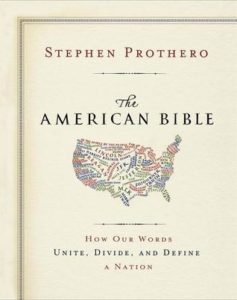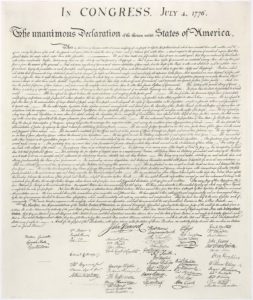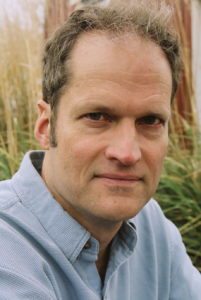 I first decided to check out the book “American Bible” thinking that it would talk about how different parts of the United States look at the Bible. The book turned out to be very different from what I was expecting, but in a good way.
I first decided to check out the book “American Bible” thinking that it would talk about how different parts of the United States look at the Bible. The book turned out to be very different from what I was expecting, but in a good way.
“American Bible: How Our Words Unite, Divide, and Define a Nation“, by Stephen Prothero, examines the core documents of our country. Prothero asks what speeches, books, documents, quotes define the American culture? He then selects what he considers to be the core documents, publishes excerpts, and collects different opinions about that document.
The documents are diverse and compelling. Prothero begins with the Exodus story from the Bible, and includes such diverse documents as the Declaration of Independence, The Star-Spangled Banner, Dwight Eisenhower’s Farewell Address, and Martin Luther King Jr.’s “I Have a Dream.” As I thought about the articles Prothero included, they seemed a good representation of the documents that form our American culture. Just talking about what articles to include or exclude has prompted some interesting discussions with my coworkers.
 Each chapter contains an introduction by Prothero that places the document in a historical context. Then he includes an excerpt, or sometimes the whole, of that document. The chapter concludes with various opinions about the document over the history of the United States.
Each chapter contains an introduction by Prothero that places the document in a historical context. Then he includes an excerpt, or sometimes the whole, of that document. The chapter concludes with various opinions about the document over the history of the United States.
For instance, there is a chapter on Roe vs Wade. Prothero introduces it with this insightful statement, “Soon the nation was wrestling with two newly minted rights – a woman’s right to privacy and the unborn’s right to life. Pondering anew the long-standing tension in American life between individual rights and collective responsibilities.”
After including the Supreme Court Decision, Prothero presents a variety of responses. Byron White’s dissenting opinion as a Supreme Court judge. An obstetrician’s testimony about the human cost of illegal abortions. The Chair of the National Right to Life Committee. The lawyer for “Jane Roe.” The Republican and Democratic Party platforms on abortion rights.
I really like this book because the author, Stephen Prothero, doesn’t make judgments or try to politicize the documents. He presents them, with the differing opinions about them, and lets the reader decide how they feel. This would be an excellent book for a group study. It might be a way for people from different sides of the political spectrum to have a dialogue about the things that matter to them in American culture. If I was pastoring a church, I would use this book as a non-judgmental way to open discussions in the congregation.
“The American Bible: How Our Words Unite, Divide, and Define a Nation” is a balanced and thoughtful book. Discussions about it might help us resume a measured discourse on different beliefs. The book was published in 2012 but is more timely than ever. But Prothero helps me feel more optimistic that we might find a way through our political morass.
 Stephen Prothero is a professor in the Department of Religion at Boston University. He is the author of numerous books, most recently “Religious Literacy: What Every American Needs to Know—And Doesn’t” and “American Jesus: How the Son of God Became a National Idol.” His newest book is “Why Liberals Win (Even When They Lose Elections): How America’s Raucous, Nasty, and Mean “Culture Wars” Make for a More Inclusive Nation.” After his balanced treatment of the core documents of American life, I am looking forward to reading some of his other books.
Stephen Prothero is a professor in the Department of Religion at Boston University. He is the author of numerous books, most recently “Religious Literacy: What Every American Needs to Know—And Doesn’t” and “American Jesus: How the Son of God Became a National Idol.” His newest book is “Why Liberals Win (Even When They Lose Elections): How America’s Raucous, Nasty, and Mean “Culture Wars” Make for a More Inclusive Nation.” After his balanced treatment of the core documents of American life, I am looking forward to reading some of his other books.

I’m going to share this at church in hopes we can study this book either in a Sunday School Class or Bible Study.
I think that would be an excellent idea. Even better if you can get a diverse group to come together for it.